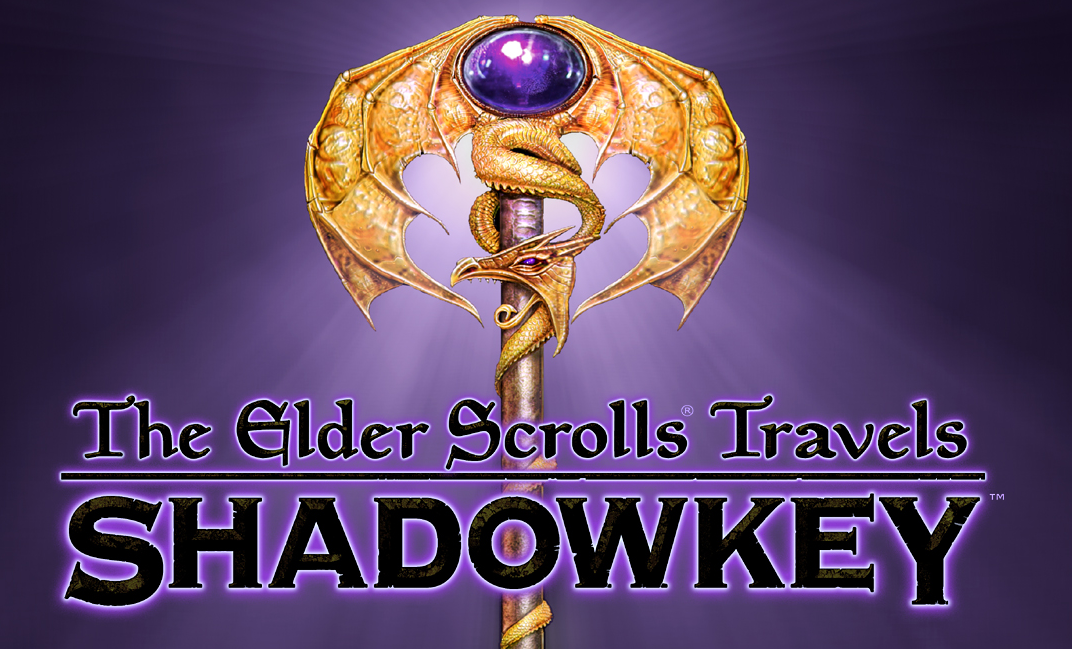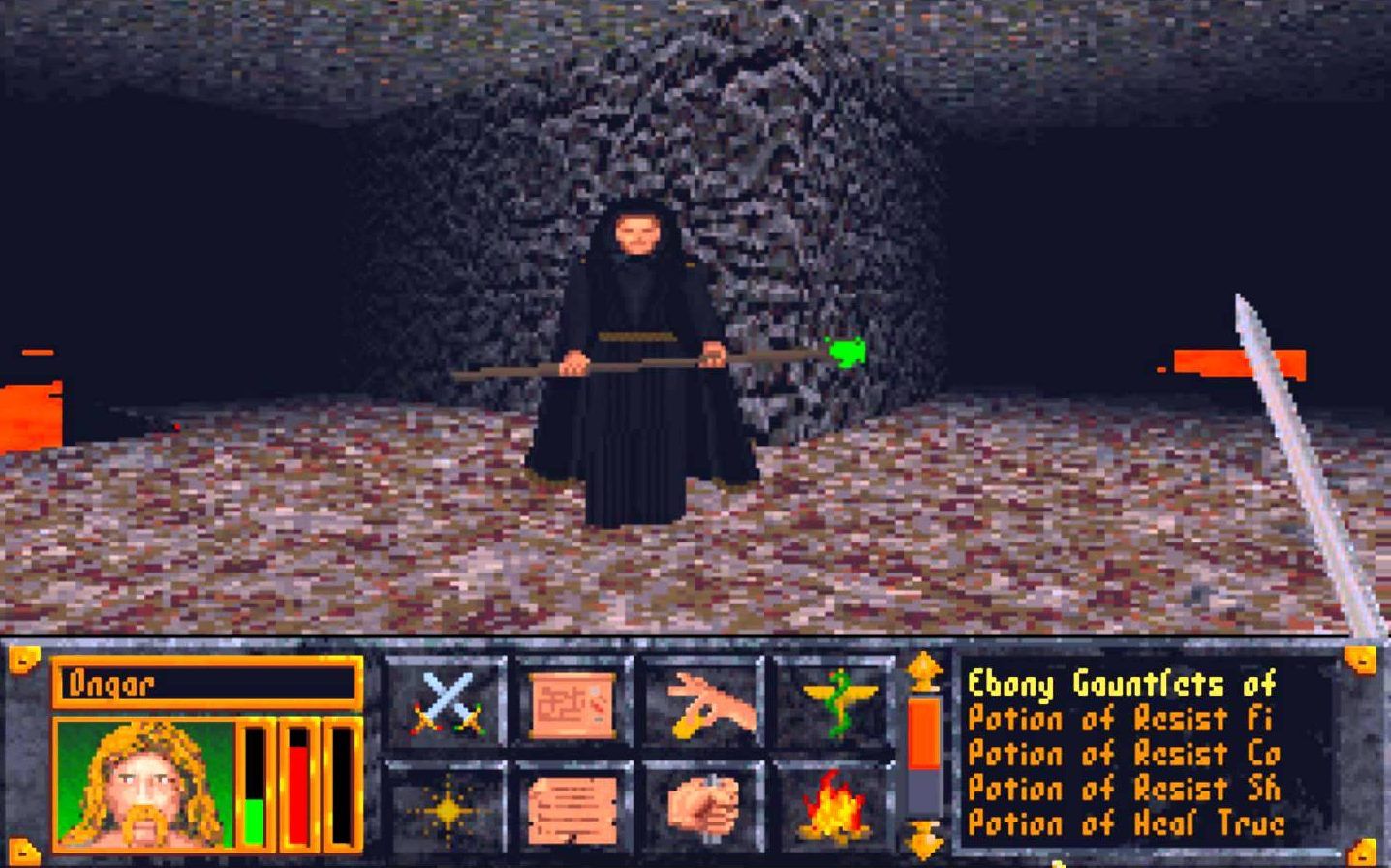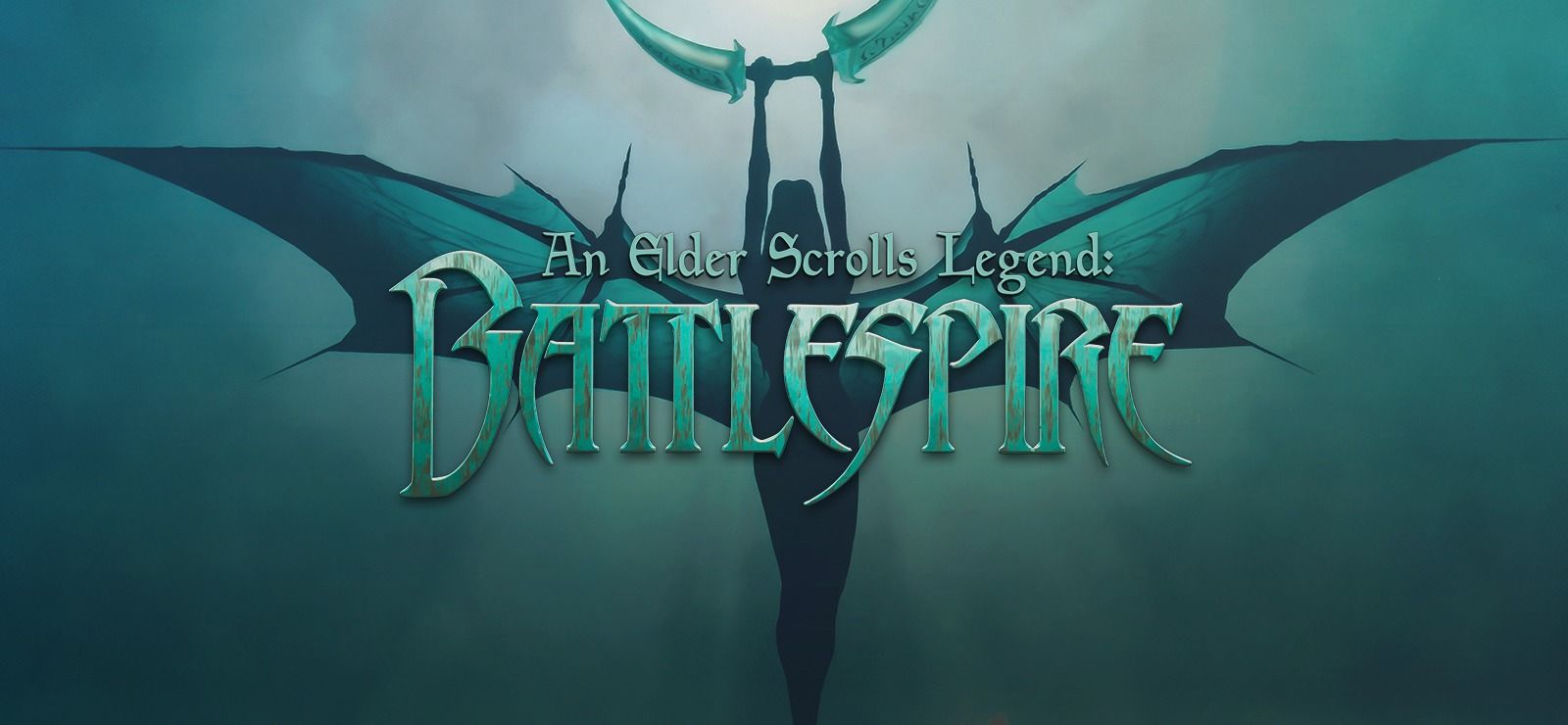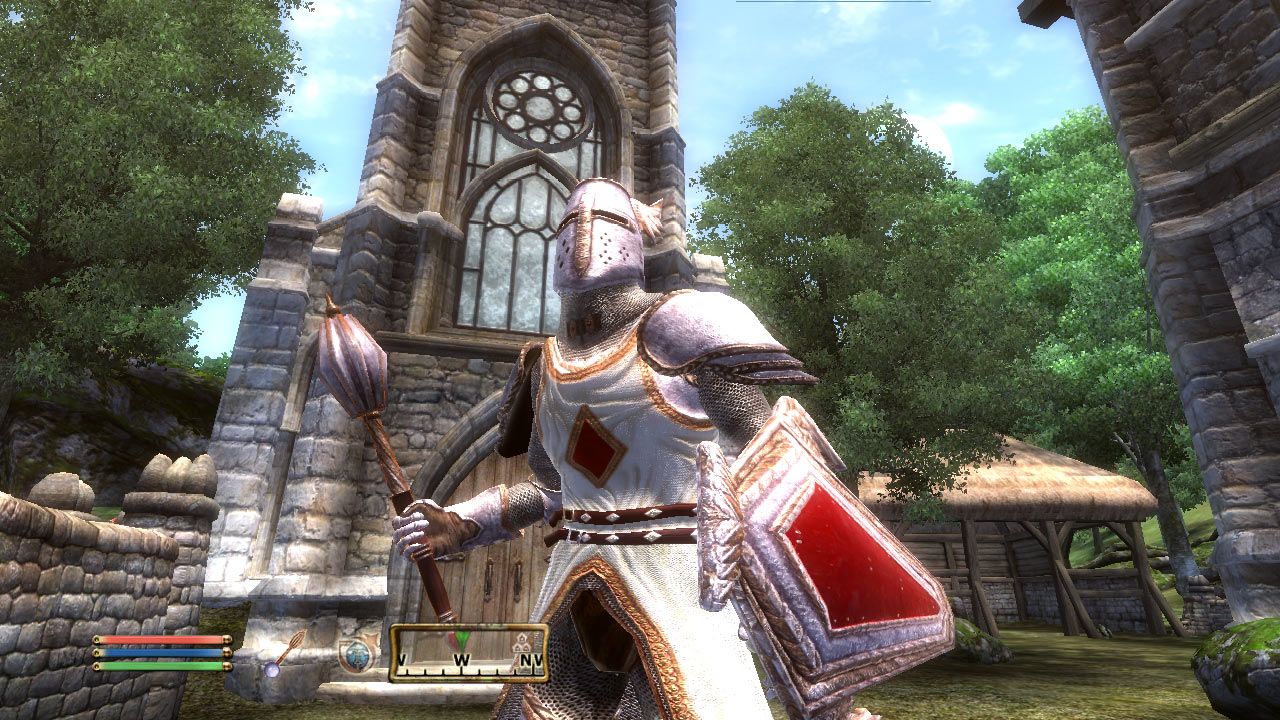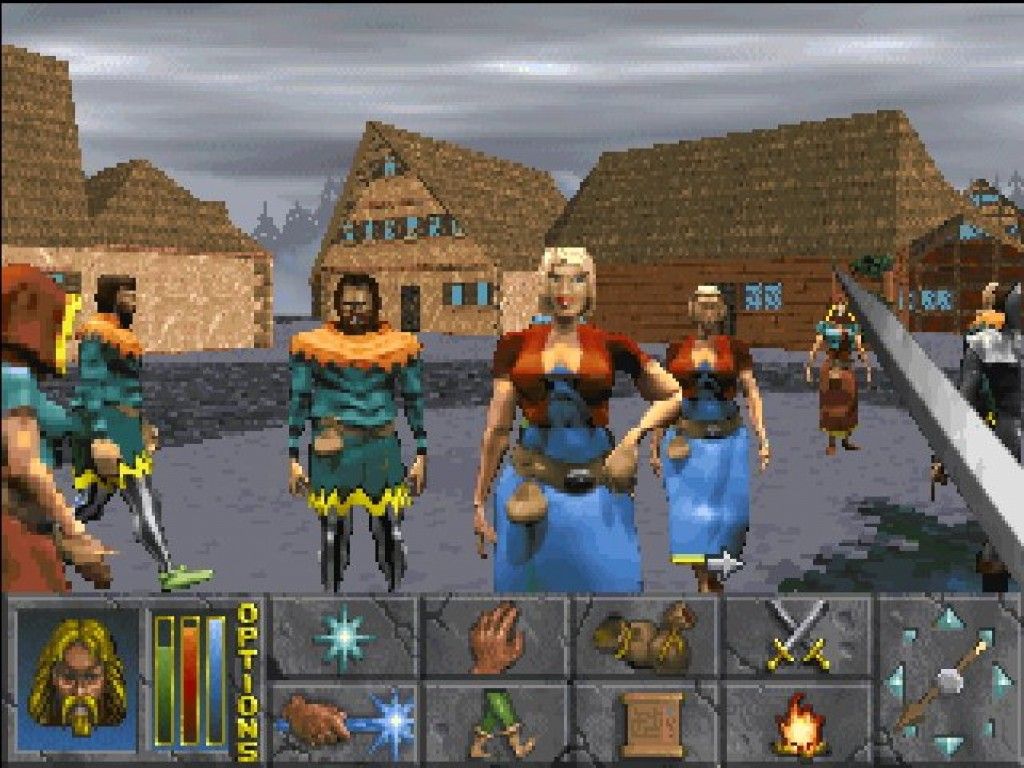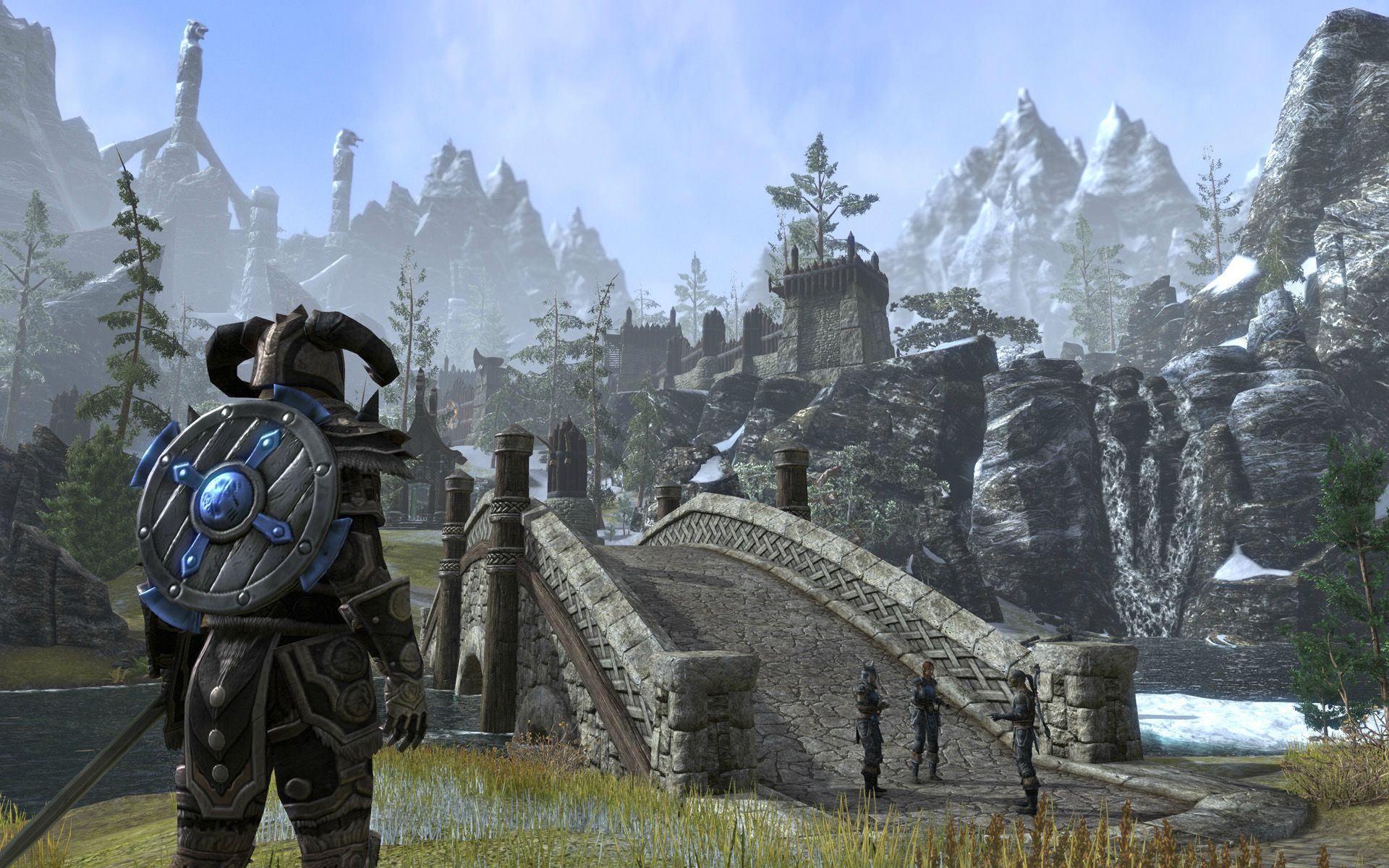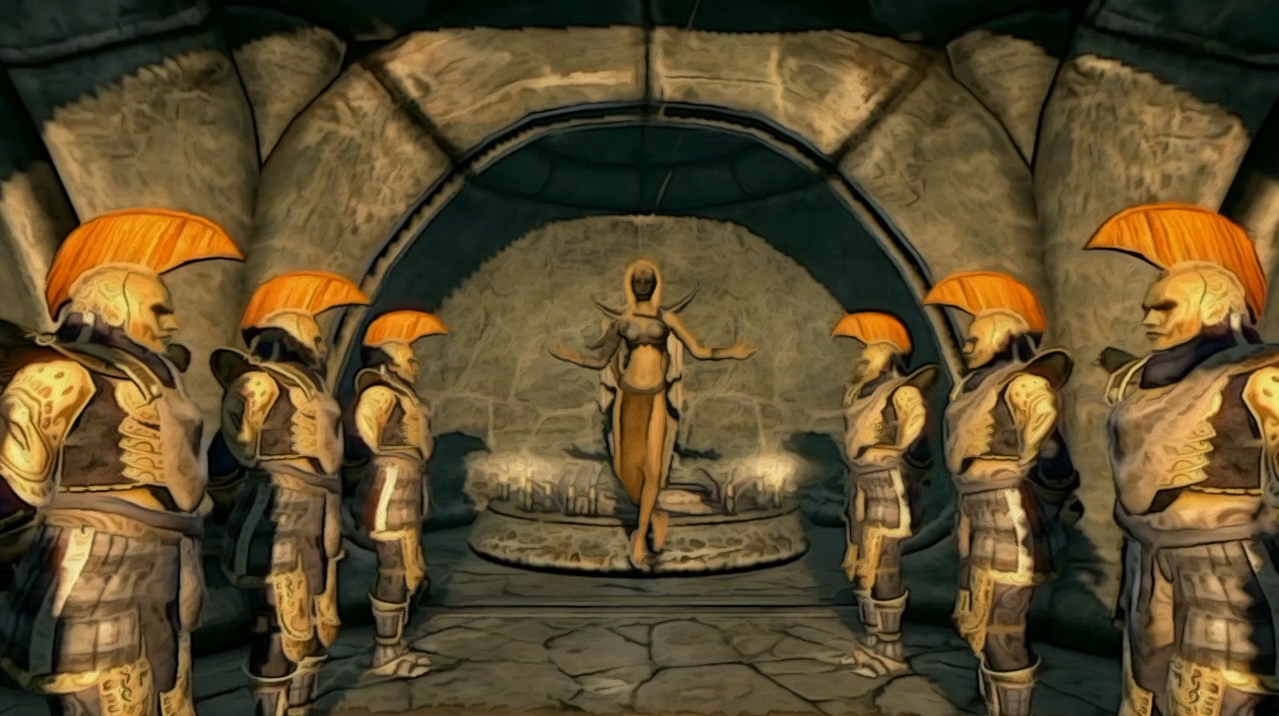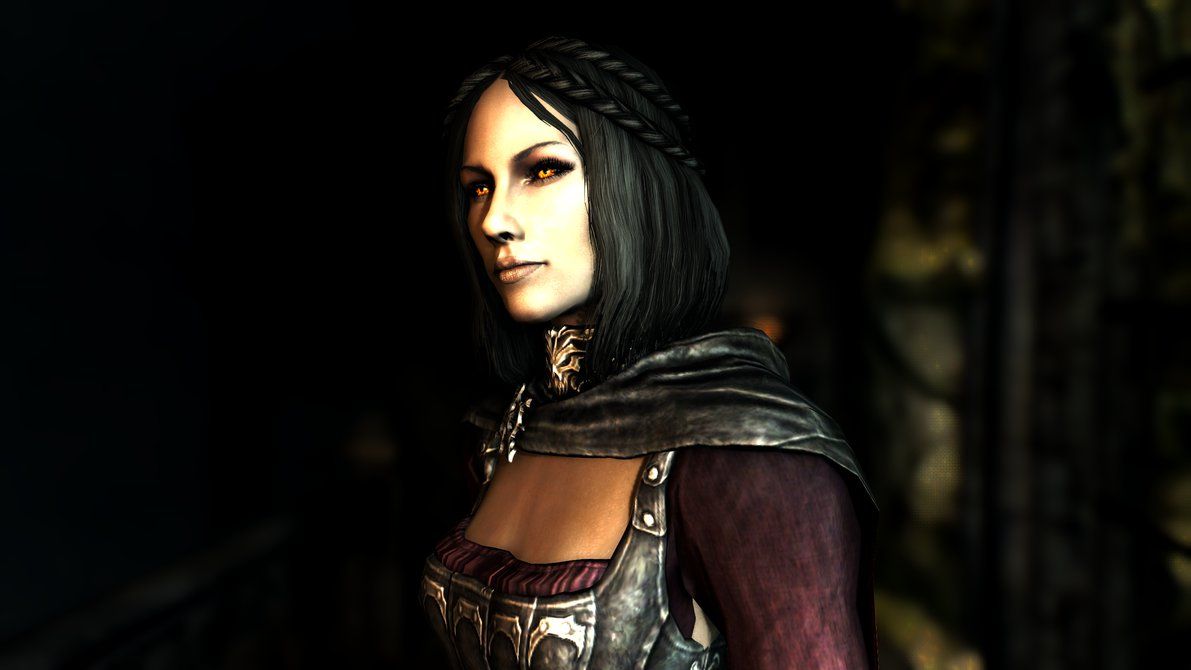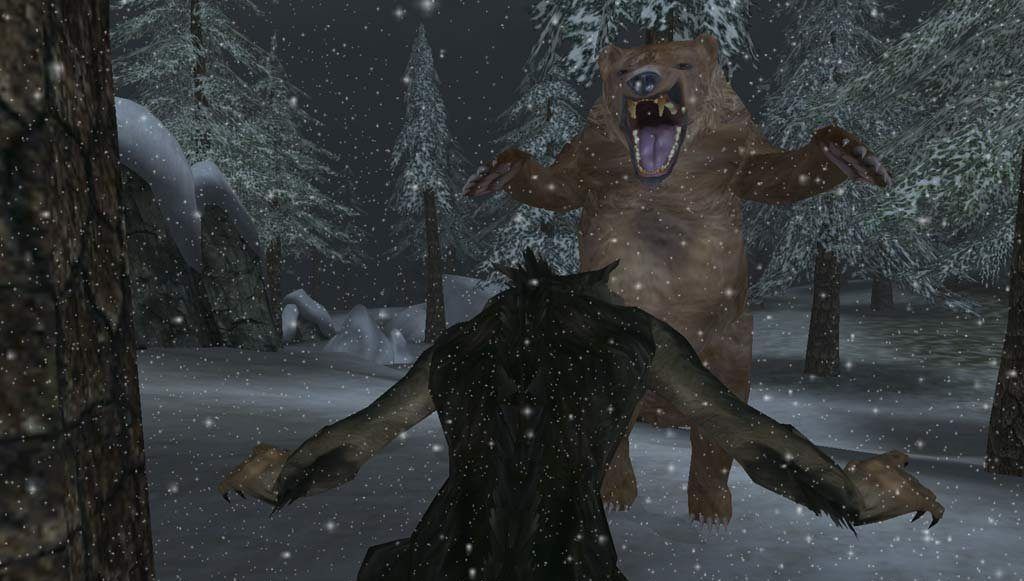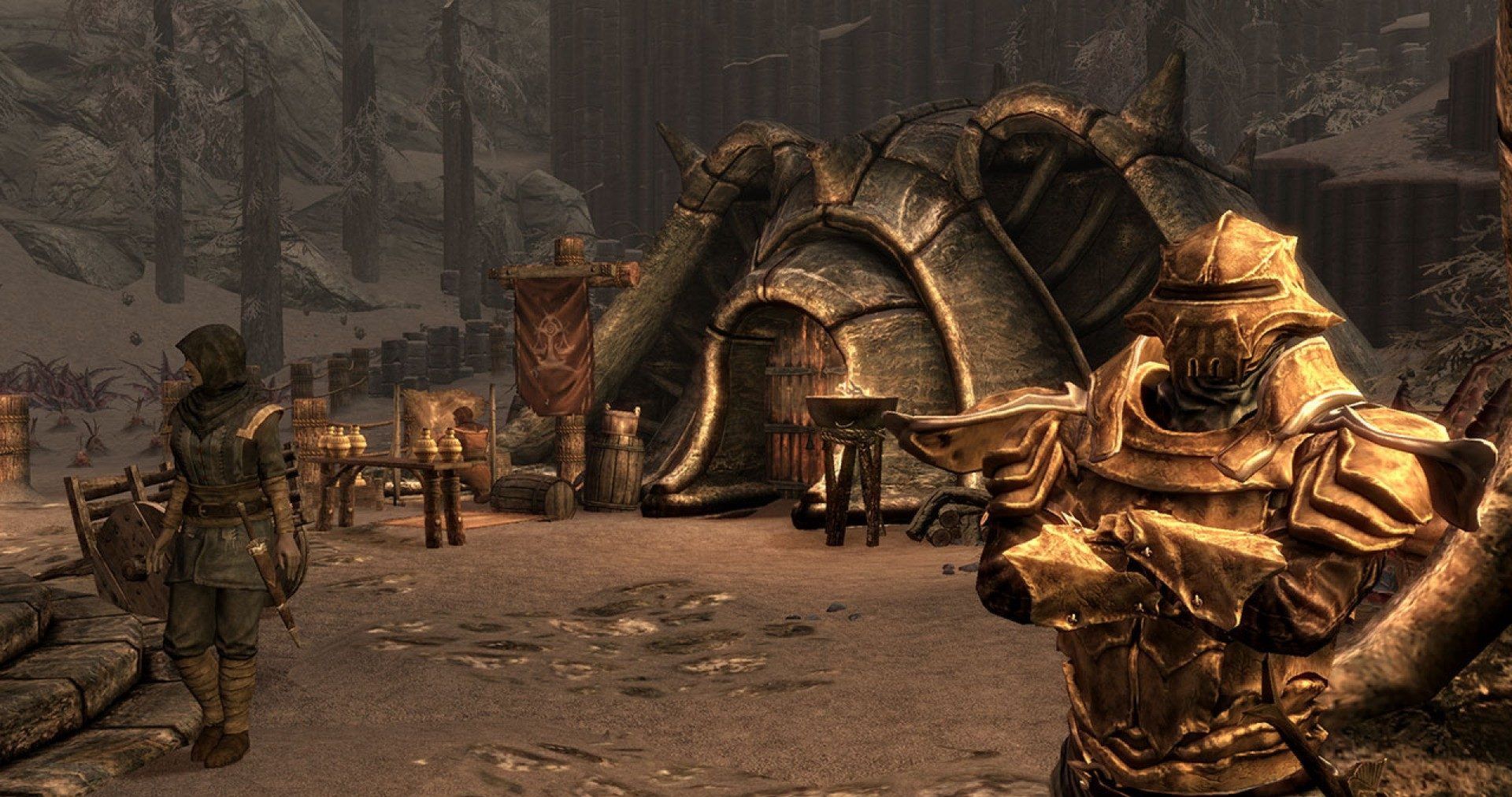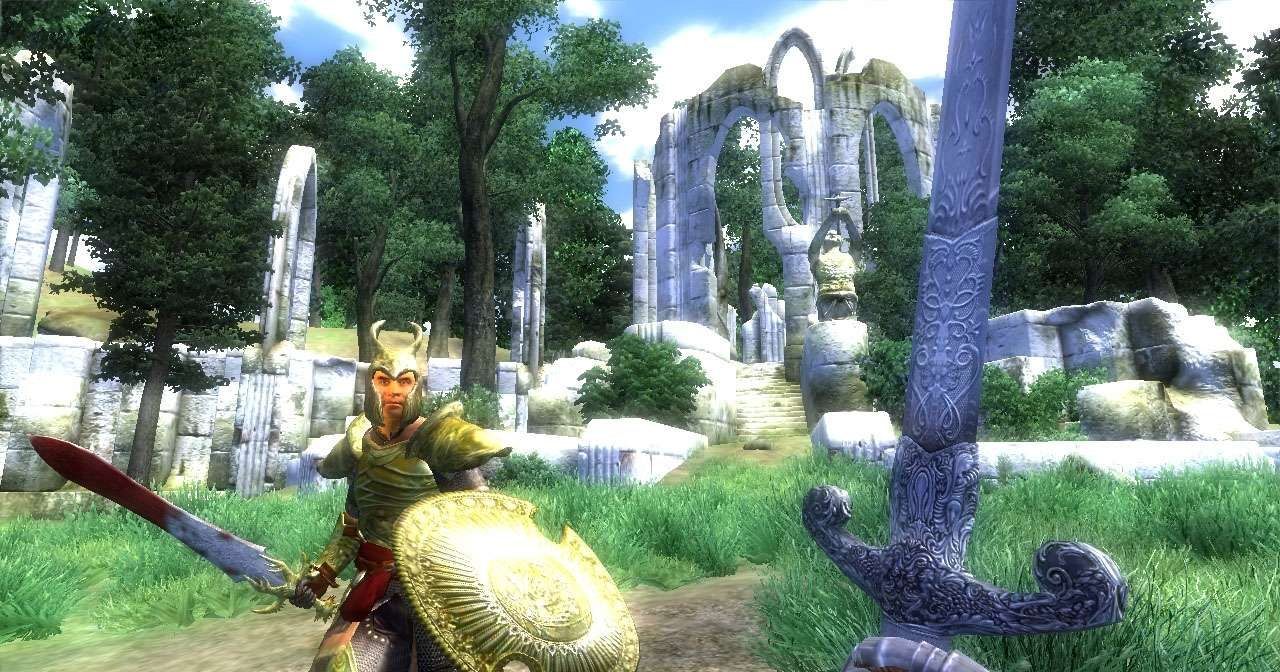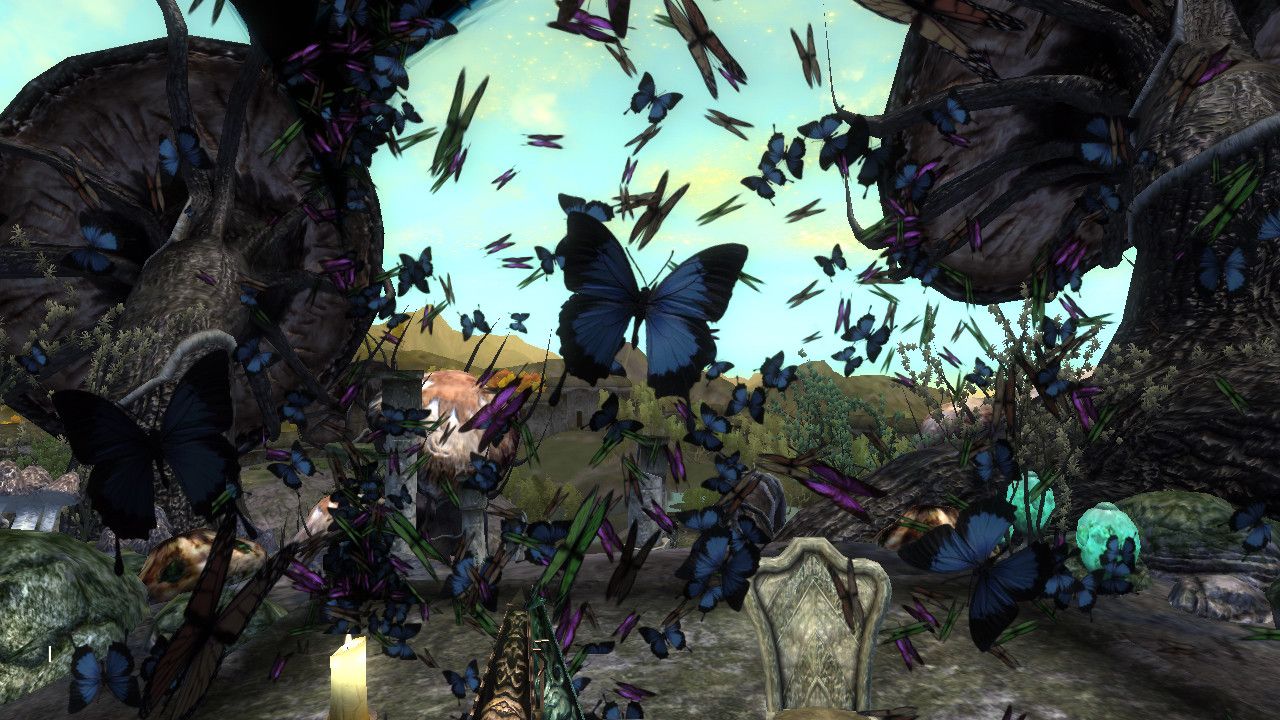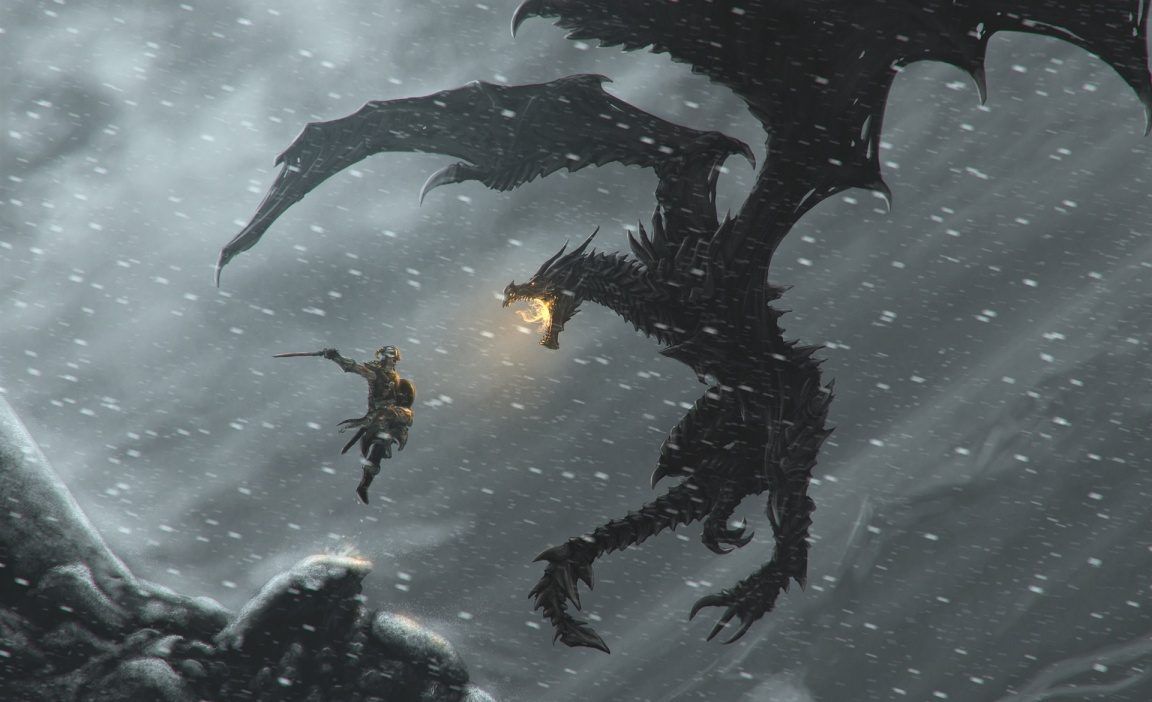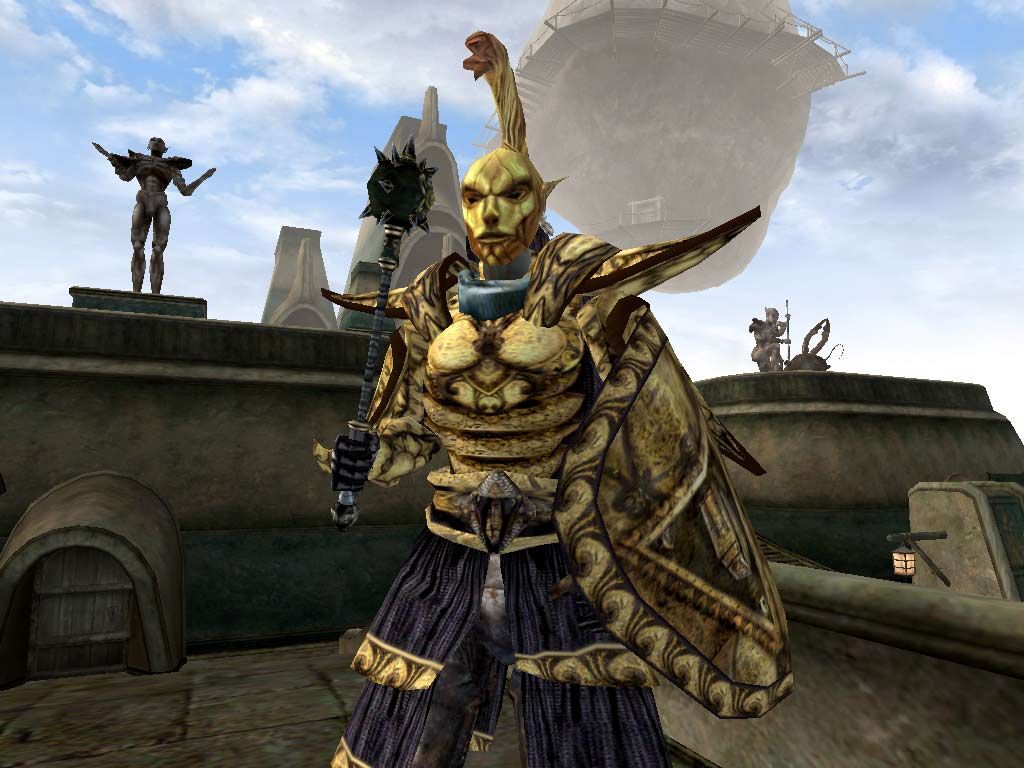Bethesda's beloved Elder Scrolls series has been around for over 20 years now, rising above its humble epic fantasy origins in Arena and becoming an open-world universe of its own with the release of epic adventures like the beloved Morrowind, the successful and influential Oblivion, and of course the exploding popularity of Skyrim. The Elder Scrolls series takes place in many different provinces across the continent of Tamriel with wildly different environments, characters, towns and storylines, but they all have a few things in common: swords, magic, and a sense of awe and wonder. Though its first installment Arena was originally planned to be a gladiatorial combat game, the developers kept adding on side quests and lore until it became more similar to Dungeons and Dragons than anything, eventually scrapping the fighting game idea for an open-world RPG series, and the rest is gaming history.
Nowadays Elder Scrolls is widely considered one of the greatest video games franchises of all time, with each game winning Game of the Year from multiple publications. Like many fictional worlds, endless debates arise among Elder Scrolls fans over which of the games are overall better than the others. We include both the official numbered main games in the Elder Scrolls series as well as the expansion packs and spin-offs. If you disagree with the list, we hope you'll offer your own insights in the comments and explain why you would rank them differently.
With that being said, here are all 15 Elder Scrolls games ranked from worst to best.
15 The Elder Scrolls Travels
The Elder Scrolls Travels series was a trilogy that brought the continent of Tamriel to handheld devices. The first two, Stormhold and Dawnstar, were exclusive to the J2ME and BREW devices, while the last, Shadowkey, was developed for the Nokia N-Gage. Nowadays it seems to be an Elder Scrolls series no one knows about, and there's a good reason for that.
While developers did what they could to bring the world of Elder Scrolls to mobile, the controls and storytelling end up being crippled by technical limitations. All three games received mixed to negative reviews from critics and audiences: the stories were unremarkable, the player's vision was limited, environments were gloomy, exploration was clunky, quests were infuriating to complete, combat was flawed, and general playability was poor. Most of these were limitations of the hardware, but Elder Scrolls Travels remains the series' low point.
14 The Elder Scrolls: Arena
Released in 1994 by Bethesda Softworks, the very first Elder Scrolls game was a slow-burning hit when it was first released. Word of mouth kept The Elder Scrolls: Arena's sales on a steady trickle for years, leading Bethesda to release several different enhanced versions. It has since become a cult classic. Unfortunately, Arena hasn't aged well. The steep difficulty of the first dungeon, the equally steep learning curve of the questionable-at-best combat system, and pixelated graphics are likely to turn off new gamers.
While the enormous number of towns and NPCs that would become characteristic of Elder Scrolls are present, most of Arena is cookie-cutter towns and identical dungeons with no unique characteristics. Still, the open-world wilderness, dungeon-diving, swords and spells that we love about the series are all here, and Arena remains a formative gaming experience for many people.
13 An Elder Scrolls Legend: Battlespire
Originally released in 1997, Battlespire was supposed to be an expansion pack for Daggerfall, but it ended up being the series' first spin-off to tide over fans until the release of Morrowind. Battlespire was very different than the two previous entries in The Elder Scrolls, in that it takes place entirely in tiny environments with linear objectives, making it more a survival horror game than an open-world fantasy RPG.
Despite the fully voice-acted characters and Daedra to fight, Battlespire is a buggy mess of a dungeon crawler that allows no exploration of the world of Tamriel, instead locking you in the titular Battlespire tower. There are no merchants, no gold, no side quests, no experience levels, no factions, no rest feature, and no role-playing. The repetitive backgrounds and game-breaking bugs also drag this one further down the list.
12 The Elder Scrolls IV: Knights Of The Nine
It's not that Knights of the Nine is bad; it's just that it's pretty bare-bones. This DLC for The Elder Scrolls IV: Oblivion focused around a faction of the same name may have a Crusader aesthetic and a fight against the sorcerer-king Umaril going for it, but it adds little to the base game. It adds a new quest line along with new locations to explore and enemies to fight, but none of it feels as immersive or harrowing as other DLC locations like the Shivering Isles or Mournhold.
Though it was well-received by critics and fans alike, Knights of the Nine is little more than a polished yet brief side quest for Oblivion. It also suffers from a lack of guidance on the part of the game, which expects you to find shrines and relics with no external help, prodding, or hints.
11 The Elder Scrolls Adventures: Redguard
The second Elder Scrolls spin-off game is notably a third-person action-adventure game in the style of Tomb Raider, Prince of Persia, and Ultima. It's also notable for being the only game in the series with a set character and race: you play as Cyrus the Redguard playing out a linear story no matter what, hence the title. Redguard is good for its tight soundtrack, voice acting, memorable landscapes and atmosphere of adventure. Overall, it has a sense of pure fun which is rare to find.
Mechanically, however, the game is pretty much broken and combat is not the best. But the character of Cyrus feels authentic, and the world feels a lot more alive than previous Elder Scrolls games thanks to the unique interactions with NPCs. Architecture in the game was unique and basically the prototype for later atmospheric games like Oblivion and Morrowind.
10 The Elder Scrolls II: Daggerfall
Until it was surpassed by 2016's No Man's Sky, The Elder Scrolls II: Daggerfall was the largest open-world game in history at 62,000 square miles. The problem is that 95% of it is absolutely nothing. Daggerfall's map is terrifyingly large: outside of towns you can walk for real-time days and see nothing but wilderness, which leaves this open world feeling rather empty.
Still, Daggerfall was nothing if not revolutionary for 1996. It's where Elder Scrolls really began for a lot of players. It took the failures of Arena and reversed them: cities and dungeons are unique and not randomly generated, you can buy your own house, join guilds, take on new side quests, find full books to read, customize your character, etc. It's clear they put a lot of thought into the game, pushing computers at the time to the limit.
9 The Elder Scrolls Online
Bringing the Elder Scrolls universe and the vast continent of Tamriel into an MMORPG format is no easy task, but The Elder Scrolls Online has managed just that. Initially met with mixed reviews, since the release of the Tamriel Unlimited expansion many have praised the changes made. The game world in ESO is absolutely huge with most of Tamriel accessible. The open-world multiplayer is a prequel to the last three games.
The questing system and story are much more linear, and the mechanics focus on the fact that there are other people around you rather than just you as "the chosen one." The scenery is breathtaking, combat and skills feel familiar, and the guild quests and main story are lengthy and deep. Don't expect Skyrim, but as an MMO spin-off and prequel ESO is solid and has a lot to offer fans.
8 The Elder Scrolls III: Tribunal
The first of two expansion packs for The Elder Scrolls III: Morrowind, the Tribunal DLC lets you visit the capital city of Mournhold and the Clockwork City of Sotha Sil. Tribunal doesn't add much to Morrowind that was wildly different, but it built solidly on what was already there. The regal city of Mournhold has the classic Dunmer architecture we all know and love while being less barren than the island of Vvardenfell. Tribunal seamlessly fits into the lore of the land of the Dark Elves.
Who doesn't remember the first time the Dark Brotherhood tried to assassinate you in your sleep? The compelling story and twist ending also gives new life to the main story of Morrowind as you learn more about the individual members of the Tribunal, their personalities and their motives.
7 The Elder Scrolls V: Skyrim – Dawnguard
Dawnguard is a solid DLC for Skyrim that sees you getting mixed up either with a faction of vampire hunters known as... wait for it... the Dawnguard, or with a clan of ancient vampires known as the Volkihar Clan. It adds several new locations like the Soul Cairn and the twin castles, several new types of dragons including Legendary Dragons, and the enjoyably overpowered Vampire Lord form to the game.
Dawnguard's shining star is the vampire companion Serana, whom many players consider to be their favorite follower and NPC in Skyrim. Her voice acting, mannerisms, and personality are all well-developed, she's useful in combat without ever getting in your way, and her presence makes sense from a story perspective. Dawnguard is a somewhat short questline, but it's memorable all the same.
6 The Elder Scrolls III: Bloodmoon
The second of two expansions for Morrowind and the better of the two, Bloodmoon takes you to the island of Solstheim northwest of Morrowind, a disputed territory between it and Skyrim. The new Nordic-style areas of the island will remind modern gamers of Skyrim's snowy forests. Soon you're absorbed into a plot involving the Imperials, the Nords of Skaal, and the Bloodmoon Prophecy by the Daedric Prince Hircine.
The big selling point of Bloodmoon is that you can become a werewolf. Unlike the linear Tribunal, Bloodmoon brings back open-world gameplay and basically lets you run around and do whatever you want (also, you can levitate again). Instead of a simple house or manor, the DLC also lets you construct your own settlement of Raven Rock.
5 The Elder Scrolls V: Skyrim – Dragonborn
Easily the best of the Skyrim DLCs, in Dragonborn you return to the island of Solstheim in the continent of Morrowind, the same island where the Bloodmoon expansion took place, in order to face the first Dragonborn Miraak in a classic tale of a hero facing a dark mirror image of themselves. Never underestimate the power of nostalgia; seeing the Morrowind aesthetic in the new updated Skyrim engine is thrilling beyond belief.
The exploration of Solstheim and its many dangerous creatures, getting a taste of Morrowind in Skyrim, the interdimensional travel to the Lovecraftian Apocrypha, and the final battle against Miraak all combine for a satisfying experience. Dragonborn also gives you the ability to ride dragons. To. Ride. Dragons. Need we say more?
4 The Elder Scrolls IV: Oblivion
Oblivion polished the template laid down by Morrowind and made it an outstanding continuation of the Elder Scrolls franchise. Lore-wise Oblivion is the most important in the series, with the events taking place affecting the history of the entire world of Nirn. An outstanding game in many respects, Oblivion introduced fast travel, a new map system, improved quest logs, more advanced dialogue trees and voice acting, and a more vibrant color palette, improving some of Morrowind's faults.
While the glitches and crashes aren't as bad as Skyrim, what Oblivion does suffer from is that it goes from feeling like an epic adventure to grinding chore quicker than Skyrim or Morrowind. Settings in both Cyrodiil and the Oblivion Gates get very same-y after a bit of play, but on the plus side Oblivion's main story trumps Skyrim but falls just short of the epicness of Morrowind.
3 The Elder Scrolls IV: Shivering Isles
Shivering Isles is hands-down one of the best DLCs ever made for a game. For many gamers it was their favorite part of Oblivion. The expansion gives you a huge new land mass of the Shivering Isles to explore, ruled over by the craziest Daedric Prince, Sheogorath. The overall feeling of Sheogorath's plane of Oblivion is amazing: it's grand, it's absurd, it's bonkers, mostly because Sheogorath himself is insane, and you can expect that to be reflected in the landscape.
The main quest and the conflict between him and the Knights of Order and the lands of Mania and Dementia is well-written and fantastical, and overall there's a pure sense of fun to it. Shivering Isles is a DLC that's nothing if not entertaining, and it stands alone in its majesty.
2 The Elder Scrolls V: Skyrim
Skyrim was quite literally a game-changer for the world of video games. Every open-world or fantasy game released since is compared to Skyrim, every game has been impacted by it. It's doubtful there was ever a game in history that became as much of a world event as Skyrim. For months on end, everyone dumped hundreds of hours into it, and then modded it until it crashed. Many people are still playing and still modding; it's the best-selling Elder Scrolls game to date.
While the story is not as good as Oblivion or Morrowind, mechanically it's the best of the series, the visuals and detail are stunning, and the dragon fights and faction quests are harrowing and fun. It had more than its fair share of bugs and crashes, but the sprawling modding community makes up for Skyrim's flaws.
1 The Elder Scrolls III: Morrowind
Here we are at last: the classic, the pinnacle, the apex. Morrowind is considered by many to be the best of the Elder Scrolls series, and it's easy to see why. The land of the Dunmer, or Dark Elves, is crawling with bizarre plants and animals like the Silt Striders and the iconic mushroom trees. One thing Elder Scrolls always had in spades is a sense of wonder, and while Oblivion and Skyrim feel like familiar fantasy settings, Morrowind makes you feel like you're on an alien planet.
Morrowind also boasts what is inarguably the best and most complex story of any of the games, some of the best dialogue, the most compelling villain, and the music... my god, the music. There's no doubt that the Elder Scrolls series will continue to improve, but Morrowind will always be magical.


